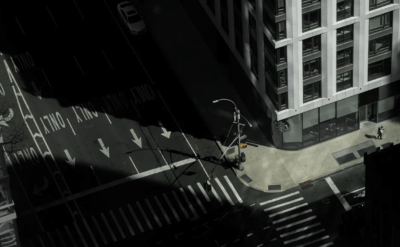Lately I’ve noticed lots of people seem nostalgic for the early pandemic time of spring and summer 2020. Especially young people. You can hear it in how they talk, especially online. I’m not the only person who has noticed this.
But the nostalgia didn’t take the form I might have guessed. People’s lives certainly changed in 2020. Things happened! And then, in many cases, their lives went back to how they were before 2020. Lots of people didn’t like the return to pre-2020. But they weren’t latching onto the features I initially expected.
So, what’s going on here? Why do people seem to miss the quarantine days of March 2020 or the protest and uprising days of June 2020.
Here are some thoughts.
March 2020
At least at the surface, millions of people’s lives changed in March 2020. Below the surface, we can say a bit more.
Life felt slow for millions in the U.S. In some cases, very, very slow. They stopped going to work. Many because they were laid off or fired, but even millions more because they began working from home or otherwise just not going into a physical office or workspace.
I’m one of them. That is to say, I worked mostly from an in-person office before the pandemic (I did occasional remote work before before March 2020). And then, suddenly, I couldn’t go into the office and had to work 100% from home. Things stayed that way for me for about a year and a half. Now I work hybrid, but I spend most of my time working from home.
The point is that those are big changes. And they slowed down time for most of us. I often remark that I can divide my time into the years 2018, 2019, March 2020, the rest of 2020, and then 2021 and 2022. March 2020 felt like an entire year.
There’s plenty of research supporting the idea that people’s sense of time was distorted in March 2020. And, in short, we tend to remember abrupt changes and disruptive events. So, March 2020 felt slow and we remember it in detail because it was so different.
I think this all plays a huge role in early pandemic nostalgia. It also plays at least some role in nostalgia for the uprising days of June 2020, to which I turn next…
June 2020
As with March 2020, we didn’t wish for the social contexts that led to the uprisings of June 2020. But in June 2020, anger at police violence against black Americans caused many of us to do something about it.
Why are people nostalgic for the protests and uprisings? In one sense, it’s easy to explain. Much like Occupy Wall Street in 2011, the June 2020 protests expressed long pent-up dissatisfaction and anger. And then the moment passed. People want to take back the initiative.
But the protests also expressed our lack of leftist institutions and outlets for creating change. Younger leftists grew up in a world where there had to reinvent the wheel. If they even thought to do it in the first place, which they mostly didn’t. And so, younger leftists tend to trip over every manner of ‘shortcut politics‘ they stumble into. They build much of their climate activism, for example, on the use of apocalyptic visions of the future as a way to get politicians to make change without first organizing.
June 2020 activism had a similar flavor. Many people saw mass protests and uprisings as a way to make change without first organizing a mass base. And in many places, much unlike climate activism, it even worked for awhile! But, of course, it fell apart.
Plenty of people would love to recapture those early days when it felt like it was working. It felt meaningful. And people remember it.
Slow and Meaningful
I’ll close with a word about my life in the spring and summer of 2020. Because my partner had to leave town to care for a family member suffering from health issues, I spent most of 2020 alone. And since we were in the middle of a pandemic, and I worked in an office job that moved online, I spent most of it really alone. At home.
Time felt slow for me, and probably even slower for me than most others.
I think I used the time well, overall. Before the pandemic, my time felt like something oddly out of my control. I worked in-person at an office 5 days per week. I attended lots of community meetings as a city commissioner and with different activist groups. These meetings took up probably half or more of my weekday evenings. I valued the work I was doing, but, to be honest, I wanted to trim it all down. I wanted some of that time back.
The pandemic gave me that time back. At least, it provided me with the opportunity to rethink how I used my time. And I took that opportunity. Now I balance my time far more effectively. It feels mostly under my control. When it comes to activist groups, I still participate. But sometimes I attend meetings online, at other times I attend in person, and I attend fewer meetings overall.
I take more walks and get more exercise. I think I take more time to appreciate my relationships and the world around me. And I moved a lot of my shopping (not to mention my job) online. So, overall, with the pandemic, I feel like I made a good use of a bad situation.
But I’m not nostalgic for the early pandemic days. I don’t want to go back to it. I’m happy enough to say that it happened, I put it to certain uses, and (hopefully) I’ll never have to do it again.
